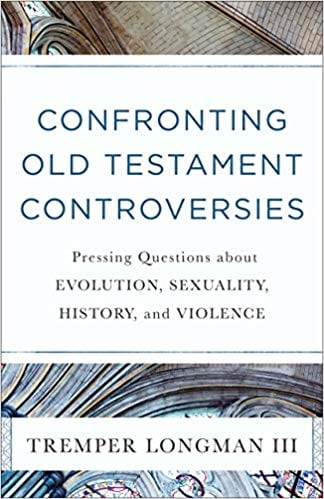Q. You argue that being in the image of God is something conveyed by God to a group of human beings at some juncture. You call it a status. I don’t agree with this, any more than I agree with the Catholic notion that the image=the soul which was infused at some point into a person or persons, making them ‘in the image’. The problem it seems to me is twofold: 1) the Hebrew says they were created that way, not that they acquired some status after they existed already, and perhaps for a very long time; 2) the phrase ‘created in the image’ suggests something inherent that distinguishes humans from all other creatures— I would suggest it refers to our unique capacity for a special relationship with God, something other creatures do not have. Here I think there is a problem with evolutionary theory and what the Bible says that cannot be easily resolved.
The heart of the genomics and genetic case against an historical Adam and Eve seems to be that human beings today descend from an original group of about 10,000 hominids. But this is hardly a problem for those who realize that the Bible is not the story of the whole human race, it is the story of God’s chosen people who began somewhere in the Middle East, apparently in Mesopotamia, between the Tigris and the Euphrates. The Bible only mentions other races of people insofar as they come in contact with God’s chosen people, for instance, already near the outset of Genesis, when we hear about Cain and Abel having wives, and Cain having to go off to the land of Nod, but with a protective sign so other humans don’t kill him.
Furthermore, most Evangelical Bible interpreters also do not think that Gen. 6-9 is recounting a worldwide flood that wiped out everyone. It was a massive regional flood that wiped out many of Noah’s contemporaries in the ANE, as also recorded in Babylonian Genesis and elsewhere. In other words, modern genetic theory and genomes need have no bearing at all on what the Bible says about Adam and Eve unless one falsely assumes that the story is about the first two human beings from whom all the rest descended. But this is not what the story claims. Nor is it what for example Paul is talking about in Rom. 5.12-21. He is saying that the first and the last Adam’s were heads of a whole group of people, such that their actions affected all those who were under the influence of Adam, and all those who were ‘in Christ’. Adam was the representative head of all hominids and his actions affected them all. Similarly, Christ is the representative head of all those who are in Christ.
A. I have to respectfully disagree and find myself closer to McKnight and Venema on this. I don’t think you can read Genesis 1-3 as the story of the precursors to the Hebrews especially since Genesis 5 and and particularly 10 make it pretty clear that there is the understanding that Adam is the precursor to all the nations. I also think the view that Adam and Eve are the precursors to the Hebrews also runs into the problem then that other people are not created in the image of God. Also not sure how your view solves the problem of “created in the image of God” not being a status unless you think that God specially created the precursors to the Hebrews, Adam and Eve, when there were already other homo sapiens around.
I guess I am also more comfortable with science’s affirmation of methodological naturalism as a route to adequate theories about the natural world particularly with the question of the process (the how) of creation since the Bible does not speak to that in my opinion. After all, there is a good case to be made that modern science’s basic principles arise out of a Christian worldview. I also have a different understanding of the flood than you so as can be seen in the recent book I co-authored with John Walton called The Lost World of the Flood (IVP, 2017). Where I may find some agreement with you is where you talk about image as related to relationship with God, but I would understand this as the reason why God confers the status (which more directly speaks to representation and the mandate to subdue and rule as benevolent kings in God’s kingship). There is so much here that I think I would enjoy pursuing further with you, but it would probably result in a book-length response.













